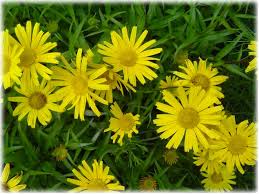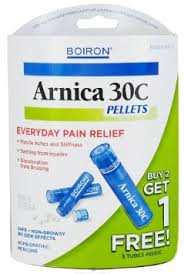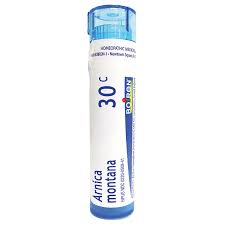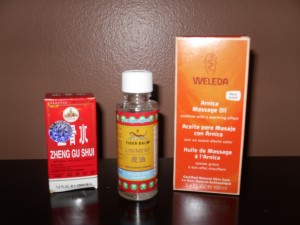Arnica for Pain and Inflammation
Arnica is an excellent choice for Pain and Inflammation. It is a natural anti-inflammatory. Arnica reduces pain and inflammation. Arnica is subtle and can create excellent healing in soft tissue.
Trauma Injury
Arnica can effectively diminish acute injury or trauma if taken or used immediately.
Arnica for Athletes, Exercise
Physical sport and exercise, recreational and competitive, is associated with frequent inflammation and pain. This inflammation and muscle pain is from overexertion, bumps, bruises or high intensity exercises. External use of arnica is effective for treating injuries.
Muscle Tears, Muscle Sprains, Muscle Strains
Arnica has anti inflammatory properties. These properties are effective for tears or strains, sprains, bumps or bruises.
Arnica Sublingual
Arnica Sublingual homeopathic pellets has been used successfully in my practice for pain and inflammation and to assist the body in reorganizing and assimilating Integrative Neurosomatic Bodywork.
History
Arnica (Arnica montana) has been used for medicinal purposes since the 1500’s and is still popular today. Applied to the skin as a cream, ointment, liniment, salve, or tincture, Arnica has been used to soothe muscle aches, reduce inflammation, and heal wounds. It is commonly used for injuries, such as sprains and bruises. As an herb, Arnica is usually used topically (on the skin) because it can cause serious side effects when taken by mouth. Oral homeopathic remedies do contain Arnica, but they use a diluted form that is not considered dangerous. If you have any question about whether you have the herbal or homeopathic form of Arnica, talk to your doctor.
Arnica is a Perennial
Arnica is a perennial that grows to a height of 1 to 2 feet with yellow-orange flowers similar to daisies. Stems are round and hairy, ending in 1 to 3 flower stalks, with flowers 2 to 3 inches across. Leaves are bright green. The upper leaves are toothed and slightly hairy, while lower leaves have rounded tips. It is native to the mountains of Europe and Siberia, and is cultivated in North America. Fresh or dried flower heads are used in medicinal preparations.
Indications
- Arnica is used topically for a wide range of conditions, including bruises, sprains, muscle aches, wound healing, superficial phlebitis, joint pain, inflammation from insect bites, and swelling from broken bones. More recent studies suggest it may also be helpful in the treatment of burns.
- Homeopathic preparations are also used to treat sore muscles, bruises, and other conditions caused by overexertion or injury. Homeopathic doses are extremely diluted. They have no detectable amount of the plant in them and are generally considered safe for internal use when taken according to the directions on the label.
Application
You should not take Arnica by mouth without direct medical supervision, except in an extremely diluted form as a homeopathic remedy, because side effects may be severe (see “Precautions”). Use homeopathic products according to directions on the label or the advice of your homeopathic practitioner. Health care providers may give homeopathic preparations by injection. When using Arnica topically, never apply it to an open wound without a doctor’s supervision. You may also use homeopathic preparations to treat bruising, swelling, and trauma to soft tissues. Follow the dosage instructions on the product label or consult a licensed homeopath. Use only in homeopathic formulations. DO NOT use the herb itself. Commercial preparations of creams, ointments, and lotions are available through some specialty stores and natural health providers. Homeopathic preparations are widely available at health food stores and many pharmacies. If you are pregnant or breastfeeding, avoid taking Arnica, and ask your doctor before using it on your skin. Talk to your doctor before taking any medication, including herbs.
Interactions
When used topically or in a homeopathic remedy, there are no known interactions with Arnica and conventional medications.





These work very well for pain and inflammation. Do cause some drowsiness, so start small and work your way up for pain control.
Hi Veronica
Thank you so much for responding to my article regarding Arnica For Pain And Inflammation. So sorry it has taken me this long to learn how to respond!
I have been using arnica post treatment and for acute injuries for 25 years. I have not heard that it causes drowsiness. I will do some checking on that aspect and respond again asap. As far as I know, it does not, but again! We learn together, so I will do some further investigation!
My best
Jenny